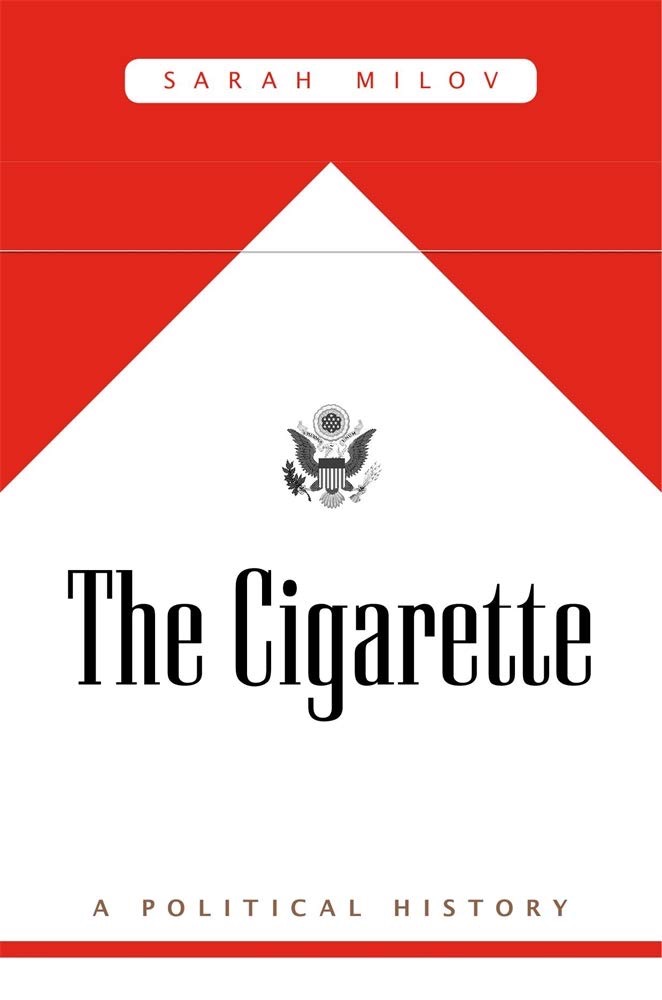The story of smoking in the United States is usually presented as a struggle between heroic scientists and activists on the one hand, fighting to get the truth out to the public, and mendacious tobacco industry executives on the other, manipulating members of Congress. Eventually truth and health prevail. In The Cigarette: A Political History, Sarah Milov provides a more interesting and complicated account. The rise and fall of the cigarette in the US was, she shows, intertwined with the country’s transition from the associational state created by the New Deal to the stripped-down neoliberal state of our own time. And a major advance in public health was accomplished through the mobilisation of a parsimonious social vision. This wasn’t just a tale of heroes and villains.
It’s hard to lament the demise of the smoky world of the mid-20th century. The anti-smoking crusade of the 1980s and 1990s resulted in healthier workplaces, but the arguments that got us there were mostly neoliberal ones. Reformers said that non-smokers took fewer sick days, fewer breaks; they rarely referred to smoking as a public health problem that might have something to do with class and racial inequality, lack of education, or unemployment. Yielding to or breaking the smoking habit was all about will, choice and moral responsibility. Who needs a public health system when sickness is a personal failure?
We are now in a world, Milov says, where ‘the smoker stands alone on a street corner and the farmer stands alone against the cigarette giants.’ (They join the unorganised industrial or clerical worker, the fitfully employed freelancer, the hospital orderly waiting for the early bus.) To frame such scenes of fragmentation, Milov quotes her mentor, the intellectual historian Daniel Rodgers: in the late 20th century, he writes, accounts of human experience once ‘thick with context, social circumstance, institutions and history gave way to conceptions of human nature that stressed choice, agency, performance, desire’. The isolated smoker, shamed into skulking on the edge of the righteous community, embodied ‘choice, agency, performance, desire’. There was no need to explain his behaviour by invoking social circumstances or institutional constraints: like everyone else, he was responsible for his own choices. Autonomy reigned. A society infatuated by such simplifications was a perfect playground for frenetic financial dealings.
